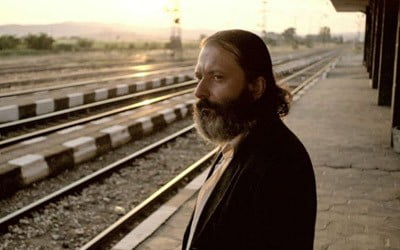Grozeva y Valchanov son una pareja profesional de éxito. Con Glory han cosechado premios en el Golden Rose Bulgarian Feature Film Festival, Hamptons International Film Festival y Locarno, además de otras nominaciones.
Tzanko Petrov es un empleado del ferrocarril que malvive con 350 levas al mes. Una mañana, trabajando, se encuentra una cantidad ingente de dinero tirada en las vías y, actuando con honradez, llama a la policía para que la recojan. La compañía de ferrocarril está en horas bajas por temas de corrupción, así que no dudan en aprovecharse de este héroe anónimo para lavar su imagen y premiarlo como héroe nacional. En la ceremonia se le hace entrega de un reloj y Staykova, la jefa de prensa del Ministerio de Transporte, le quita el suyo para guardárselo; nunca se lo devolverá. Tzanko comienza entonces un calvario y a ser manoseado tanto por el ministerio como por los periodistas contrarios a él, incluso poniéndose en contra de sus compañeros de trabajo, a quienes acusa de robar al ferrocarril.
Se trata de una historia muy cruel. En las sociedades europeas que nos ha tocado vivir vemos a diario casos como este, en el que la honradez se paga con carcajada, el intento de manoseo y arrimar el ascua a la brasa son moneda de cambio y, un buen gesto, puede acarrear consecuencias funestas.
Tzanko Petrov es un trabajador cualquiera, y haciendo uso de esa diferencia de clase, se aprovechan de él, lo marean y lo obligan a hacer cosas que él no desea o no está de acuerdo, creando una red en la que se ve atrapado por intentar mejorar la situación del ferrocarril.
La película es una obra de arte. El guion es extremadamente duro y, salvo tres personas que no entendieron nada de la película (sentadas detrás mío en el cine, por desgracia, y que no paraban de reírse), la sala permaneció en silencio, reflexiva y acongojada. Todos nos vemos reflejados en Tzanko.
La fotografía es espectacular, con un dominio de los planos y los cortes que contribuyen extremamente a contar la historia. Stefan Denolyubov borda el papel, así como Margita Gosheva. Si hubiera que buscar un fallo a la película, harto difícil, sería el excesivo protagonismo de la vida personal de Staykova, que se revela como artimaña narrativa para caracterizar un personaje que ya de por sí estaba caracterizado desde el minuto uno.
La incapacidad para comunicarse de Tzanko ofrece un valor mayor a la película, puesto que provoca una empatía intensa con el pobre hombre. Y, como he dicho, Denolyubov está enorme en el filme.
Para mí, una seria candidata a ganar el premio del certamen. A pesar de los de la fila de atrás.
Slava (Glory), Petar Valchanov and Kristina Grozeva. Official Section. FICX (English)
Winner of the Don Quixote Award at the Locarno Festival, 2016.
Grozeva and Valchanov are a successful professional couple. With Glory, they’ve won awards at the Golden Rose Bulgarian Feature Film Festival, Hamptons International Film Festival and Locarno, in addition to other nominations.
Tzanko Petrov is a railway worker who lives with 350 bulgarian levas a month. One morning, at work, he finds a huge amount of money lying on the tracks and, acting with honesty, calls the police to pick it up. The railroad company is in a bad situation because of corruption so they do not hesitate to take advantage of this anonymous hero to white-wash his image and reward him as a national hero. At the ceremony, the Minister rewards him with a watch and Staykova, his press head, takes the old watch of Petrov that will never return to him. Then Tzanko begins an ordeal while he’s being bullied by both the Ministry and journalists who oppose them. He’s even turning against his co-workers, whom he accuses of robbing from the company.
This is a very harsh story. In our European society, we see cases like this one every day, where honesty is rewarded with laughs, attempts of handling and stopping the selfish, personal interests are currency and good intentions can carry terrible consequences.
Tzanko Petrov is an average worker, and by making use of that class difference, they take advantage of him, make him dizzy and force him to do things he doesn’t want to or disagrees with, creating a network in which he’s trapped by trying to improve the railway situation.
The film is a masterpiece. The script is extremely hard and, except for three people who did understand anything about it (sitting behind me in the movie, unfortunately, and laughing all the time), the cinema remained silent, reflective and distressed. We all felt reflected in Tzanko.
The cinematography is spectacular, with a master of shots and cuts that contribute extremely to narrate the story. Stefan Denolyubov’s performance is amazing as well as is Margarita Gosheva’s. If I’ve to search for a flaw in the film, very difficult task, it would be the excessive prominence of the personal life of Staykova, which reveals itself as a narrative trick to characterize a woman that was already characterized from minute one.
Tzanko’s inability to communicate offers a greater value to the film, since it provokes intense empathy with the poor man. And, as I said before, Denolyubov is enormous in the movie.
For me, a serious candidate to win the Award of the Official Section. In spite of the people behind me.



























